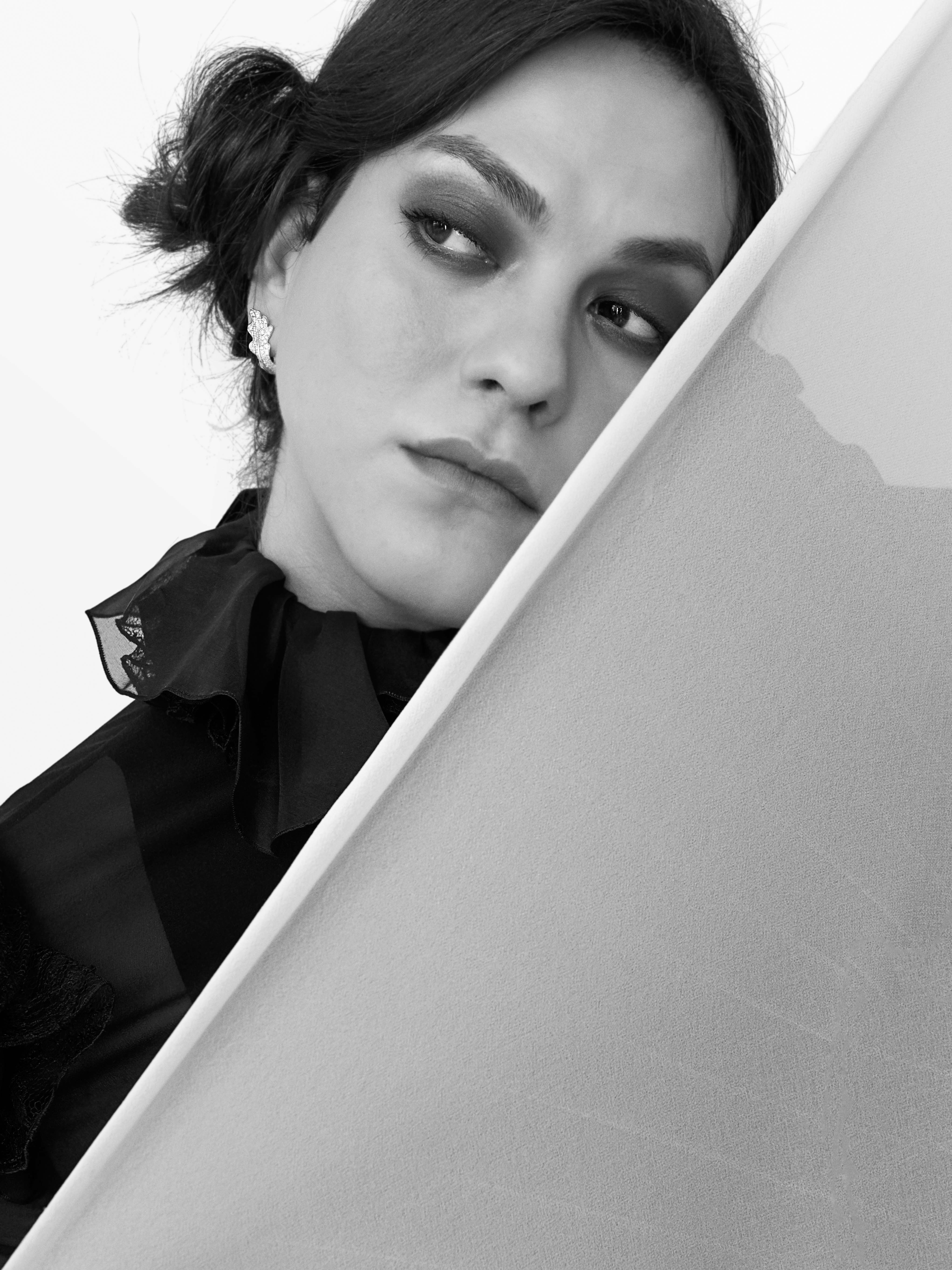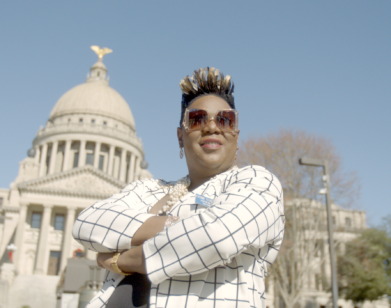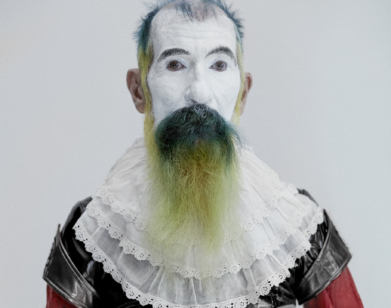The Chilean trans actor who could be in the running for an Academy Award
Daniela Vega is a master of the Mona Lisa smile: a slightly upturned lip or a sideways glance reveals a multitude of inscrutable emotions, almost tangible but hidden just below the surface. It’s a necessary skill for any actress outside the soap opera—to economize on feeling so as not to explicitly telegraph, to reveal only so much without giving it all away. Vega wields her features like an artist does his brush, conjuring sentimental landscapes partially obscured by an electrically-charged fog.
The Chilean actress is the Hollywood hopeful in this year’s A Fantastic Woman, a stylish noir-inspired coming-of-age story, and her country’s entry for the Academy Award for Best Foreign Language Film. Directed by Sebastián Lelio, the movie tells the story of Marina Vidal, an aspiring singer who, within 15 minutes of the film’s beginning (spoiler), is beset by tragedy when her boyfriend Orlando suffers an aneurism and dies on the night of her birthday. Significantly older than Marina and also divorced, Orlando leaves behind a family that regards his new lover with an intense suspicion because she is transgender, and begins to abuse her as a scapegoat for their misplaced grief, anger, and bigotry. Violently kicked out of the apartment she had recently begun to share with Orlando, forbidden from attending his wake and funeral, and hounded by a sadistic detective who is single-mindedly and mistakenly convicted of foul play, Marina is left to mourn from afar.
Throughout, Lelio’s camera lingers as she inspects her reflection in the mirror. We watch Marina watch herself, the way she wordlessly negotiates grief, questions her identity, and ultimately uncovers a reservoir of strength that truly is deserving of the word fantastic. It’s in these moments that Vega’s painterly talent truly shines. A trans woman herself, she describes the film as “a movie within another movie,” the culmination of both her character’s journey of self-discovery and her own as an artist.
“I started acting because I was depressed,” Vega says, explaining that she used to work as a singer and makeup artist before discovering her love of theater. It became her therapy, a way to combine her vocal and cosmetic talents, and ultimately the means by which she would realize her own identity. “When I was a girl,” she explains, “all the things I wanted to be when seeing a woman were not possible. And little by little, with a lot of effort and a lot of dedication, I’ve been able to fulfill the dreams that I’ve had.” It was through acting that Vega discovered her own power for self-determination.
That A Fantastic Woman, her second film, is already garnering Oscar buzz is testament to the fact that while Vega may be a relative newcomer to the scene, her ability easily rivals that of veteran players twice her age. She’s not one to focus much on accolades, however, and demurs on mention of the Academy Awards, shrugging it off by saying, “I will cross that bridge when I arrive at the river.” Instead, she’s happy enough that the film is out in the world, spreading a message of empathy where, recently, it seems in short supply. “I’ve been able to see during a dark moment in this world,” she says, that ”trust, love, and art can be positive and intelligent roads to find ourselves as human beings.”
A FANTASTIC WOMAN OPENS IN SELECT THEATERS FOR ONE WEEK ONLY STARTING NOVEMBER 17, 2017.





